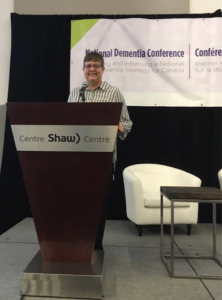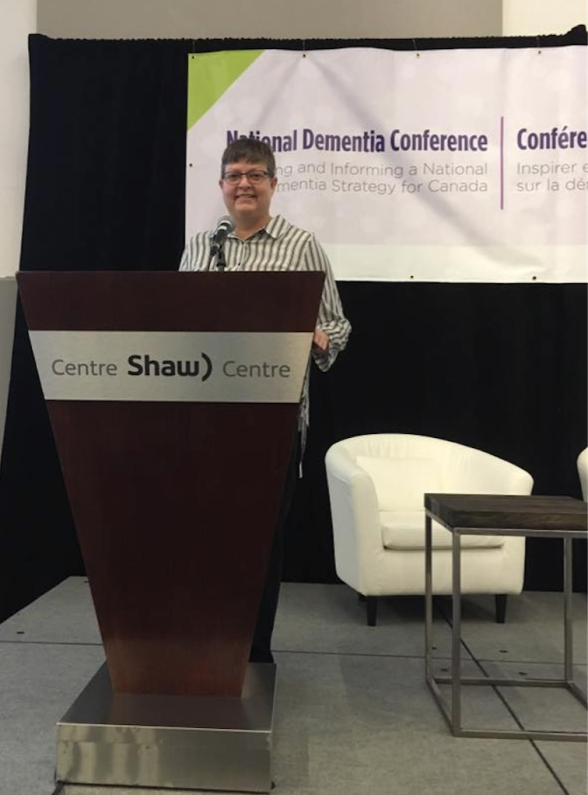 As promised yesterday, todays blog is of Mary-Beth ((MB) Wightons brilliant speech at the Canadian National Dementia Conference in May. Thanks to MB for advocating for us all. We are all very proud of you, and your amazing partner Dawn, and everything you are all doing in Canada. Congratulations again for your selection onto the Ministerial DementiaAdvisory Group. You can read Mary-Beths full speech below.
As promised yesterday, todays blog is of Mary-Beth ((MB) Wightons brilliant speech at the Canadian National Dementia Conference in May. Thanks to MB for advocating for us all. We are all very proud of you, and your amazing partner Dawn, and everything you are all doing in Canada. Congratulations again for your selection onto the Ministerial DementiaAdvisory Group. You can read Mary-Beths full speech below.
Journey through the continuum of care and the healthcare system from the perspective of a person living with dementia.
I never would have imagined that at the young age of 45 I would be diagnosed with dementia.
Unbeknownst to me, my dementia journey started 4 years earlier with an initial appointment with my family doctor for memory problems and other symptoms.
My GP did an excellent job of referring me to specialists who could possibly provide insight. After a plethora of tests, doctors, and diagnosis’s including Conversion Disorder and PTSD, it would be a gerontologist who would provide the life-altering diagnosis of probable frontotemporal dementia.
The Assessment Process within my care pathway was riddled with anxiety, confusion, long-wait times, and an overwhelming lack of understanding of the next steps of care.
The diagnostic disclosure was abrupt, insensitive and simply lacked compassion. Like hundreds of thousands of other Canadians with dementia, I was told to go home and get my affairs in order.
After weeks of waiting, we would then move into my postdiagnosis support. The local Alzheimer Society and Community Care would sit down with my partner, Dawn, and me. We were introduced to a definition called Early-Onset. Other than that, little support was provided in terms of appropriate education and resources.
Unlike most people living with dementia, young-onset has its own additional challenges that our healthcare system is struggling to address. At the age of 45, my financial support to my family drastically was reduced. Dawn, who was 39, was told she would be my primary care giver with the expectation that our daughter, who was just 17, would also be expected to contribute in care. Dawn is expected to do this without pay and at the cost of her own career and life choices.
And through most consultations and meetings, the focus has been on my inabilities, and the stress and heartache that I will bring to my family and friends.
Stigma is drippingfrom the Canadian healthcare system and it is combined with a lack of appropriate education for all parties.
I’m worried what the next stages of my continuum of care will bring. The fragmented care pathways and healthcare systems I experience, cannot exist.
Thank you.
